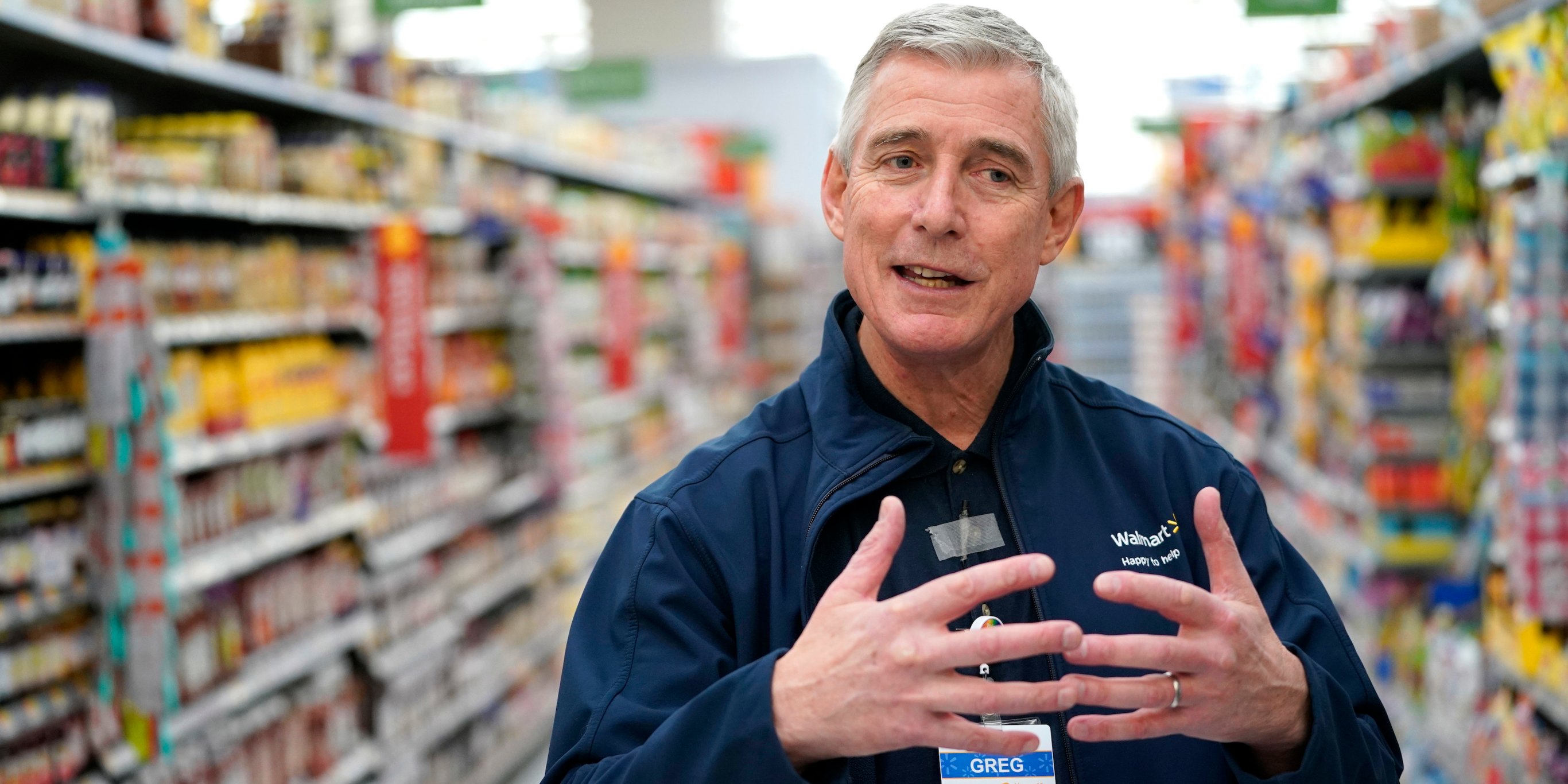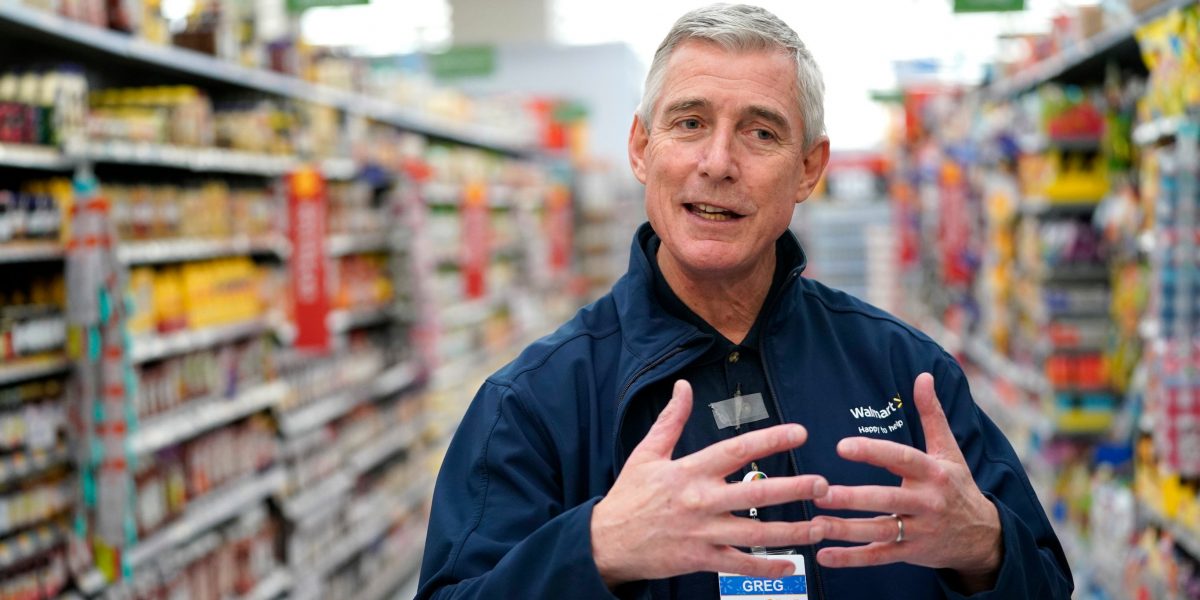
Walmart US CEO Greg Foran on Wednesday offered a rare look inside the company’s strategy against its biggest rivals, including Amazon, Aldi, and Lidl.
He said he uses a biblical analogy to describe the relationship between Walmart and its competitors.
“There was a period in time when Walmart was David and Sears and Kmart were Goliath. And it’s always fun being David. Everyone loves David. No one likes Goliath,” Foran said, speaking at a UBS Global Consumer and Retail Conference.
“We woke up at some point in 2000 and whatever and found out we were Goliath. And when you are Goliath you find that there are other Davids that start throwing stones at you and you’ve got to learn to deal with that. If you become immobile, you just end up taking a lot of hits.”
Foran said there are several “Davids” that Walmart focuses on.
“These are people out there that attack us,” he said. “You’ve got drug stores, you’ve got traditional supermarkets, you’ve obviously got Amazon, you got hard discounters, you’ve got other discount stores, and we don’t try and necessarily combat every single aspect of what they do, but when you’ve got stores that sit on 20 acres every two to three acres, you do have to deal with the fact that there are multiple Davids in your marketplace.”
Walmart CEO says ‘bring it on’ to competitors
Rachel Askinasi/Business Insider
Foran said Walmart considers some key questions when thinking about its strategy against Amazon, including: “Is the name of the game to have hundreds of millions of SKUs or is the name of the game to have a more curated assortment? … What opportunities are there with data? How should we be thinking about health and wellness in the space with 4,700 pharmacies?”
But Walmart doesn’t try to launch a counterattack every time Amazon makes a new move, Foran said.
“This concept of the store being more than just a good store but being a fulfillment center feels like a pretty safe bet,” he said. “So place your bets where you know you’ve got it right. Put a foot in the water on some of the other things, and let’s test and learn. And some of the others, maybe you just sit back and wait and see.”
Read more: Ex-Walmart exec says theft helped kill Walmart’s cashierless checkout technology
When asked about Amazon pushing further into grocery and potentially opening its own chain of grocery stores separate from Whole Foods, Foran said, “I love competing and I think competition makes us better.”
“It galvanizes an organization into doing something,” he said. “So I like it. Bring it on.”
There are many details that go into the planning process for physical stores, such as location, traffic signals, visibility from the road, signage, and other factors, which Amazon will have to learn, he said.
“Every time you enter a new business, you’ve got to have that energy and that drive to actually understand all of those components that go to make it work,” he said. “Let’s see what happens as they get into the space.”
Lidl’s US arrival ignited a ‘galvanizing moment’ for Walmart
Foran described Lidl’s entrance into the US market as a watershed moment for Walmart.
“When we heard that Lidl were coming, trust me, what a galvanizing moment for the eastern seaboard for Walmart,” he said. “We just got people fired up — North Carolina and South Carolina and Virginia — and said we’re going to take the battle.”
Walmart remodeled its stores in those states, which is where Lidl said it would focus its new store openings, and lowered prices in the area. Walmart also focused on building out its online grocery business in those stores, he said.
“Lidl has put down three big [distribution centers] here in the United States,” he said. “Guess what they’re going to do? They’re going to turn on the openings and they are on their third chief executive. So watch out: here they come.”
Foran also singled out Aldi as a “fierce” competitor.
“I never underestimate them,” he said. “I’ve been competing against all them for 20-plus years and they are fierce and they are good. They’ve done a very good job in the last two years of remodeling their stores, revamping them, changing their layouts, increasing the amount of organics that they’re offering, gluten-free, they’ve driven prices down cleverly, improved the offer overall.”
He said Aldi likely moved quickly to improve in the US after losing market share to Lidl in the UK.

